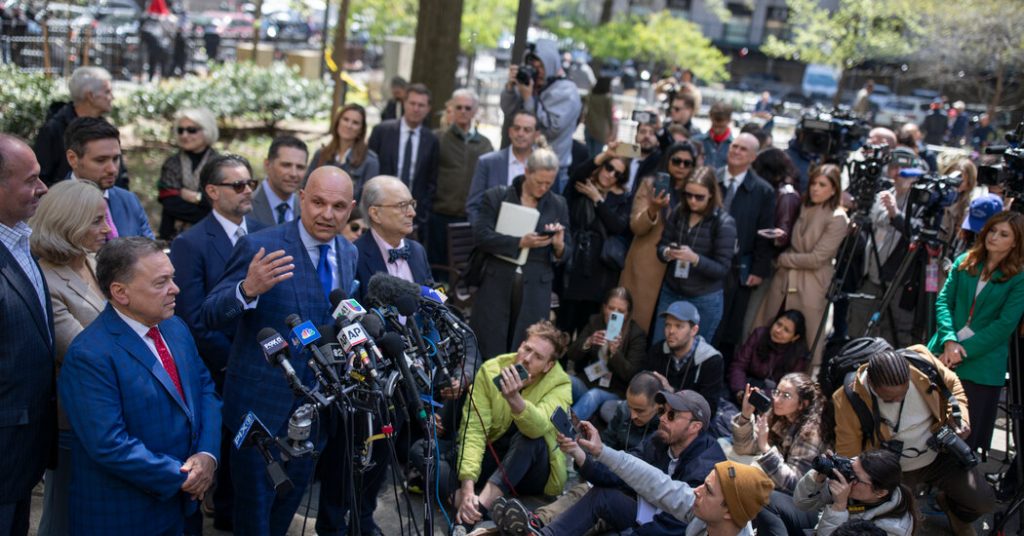The trial of Harvey Weinstein in New York in 2020 was an emotional roller coaster, with one of the key accusers breaking down in tears and the trial being adjourned for the day. The trial ultimately resulted in Weinstein being sentenced to 16 years in prison for sex crimes in California. His conviction was later overturned by New York’s highest court, leading to the possibility of a new trial. The case was seen as a pivotal moment in the #MeToo movement, with prosecutors aiming to hold powerful men accountable for their treatment of women.
The appeals court ruling that led to the order for a new trial has raised doubts about the legal system’s ability to hold influential people like Weinstein accountable. The original trial focused on proving Weinstein’s actions as a sexual predator, without relying on physical evidence. The accusations were supported by the testimony of multiple women, but the lack of physical evidence made the case shaky from the start. The new trial would potentially involve the same accusers testifying again, facing brutal cross-examinations by Weinstein’s lawyers.
Weinstein was serving his sentence in an upstate New York prison before his conviction was overturned, leading to his transfer to the Rikers Island jail complex. His deteriorating health prompted a transfer to Bellevue Hospital Center’s prison ward for testing. The district attorney’s office has expressed the intention to retry Weinstein, but the uncertainty surrounding the new trial leaves many questions unanswered. The legal team representing Weinstein is prepared to object to any plans to call back certain witnesses for the second trial.
Prosecutors may have to rely on the testimony of the initial accusers, Miriam Haley and Jessica Mann, with the possibility of new accusers coming forward. The complex dynamics between victims and abusers posed a challenge for the prosecution in the initial trial. Concerns about revictimization and retraumatization have been raised, as accusers would have to relive their trauma during courtroom proceedings. The use of Molineux witnesses to establish a pattern of behavior in the case may be contentious in a new trial.
The potential complexities of a new trial, including the absence of certain witnesses, could make securing a conviction more challenging. Witnesses who provided supporting testimony in the original trial may not be available for the second trial. Legal experts argue that the use of certain witnesses in the original trial may have played a role in Weinstein’s conviction being overturned. The possibility of Weinstein testifying in a new trial could lead to a tense and brutal cross-examination by prosecutors, potentially impacting the outcome of the case.
As the legal process moves forward, Weinstein’s appearance at a hearing in the same courthouse where he was tried and convicted marks the first step towards a potential new trial. The ruling by the appeals court did not exonerate Weinstein, leaving the possibility for victims to seek justice and potentially revive the case. The outcome of a new trial remains uncertain, with the decision on whether to retry Weinstein resting with the district attorney’s office. The potential impact on victims, the legal system, and the #MeToo movement hangs in the balance based on the choices made moving forward.


